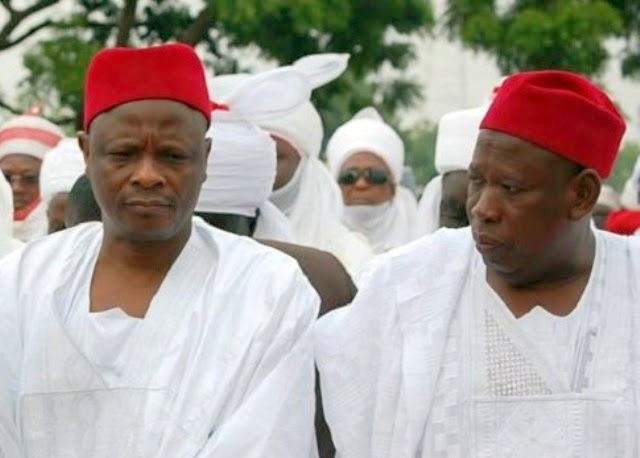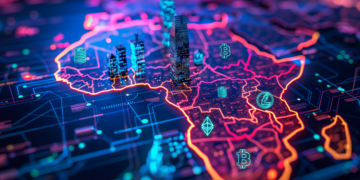If you thought the Cold War between former governors of Kano State, Abdullahi Ganduje and Rabiu Musa Kwankwaso, was a thing of the past, think again. Even after Ganduje’s recent completion of his tenure as governor, the feud between these two Kano politicians has taken on a new phase.
Since 2015, there has been no love lost between these individuals. Ganduje, who owes his political ascendency to Kwankwaso, served as his deputy governor for eight years and succeeded him after his second term. It’s a rarity in Nigeria for deputy governors to succeed their principals.
As expected, their falling out occurred swiftly. We’ve witnessed this movie script countless times, where godfathers clash with governors after a few months. Ganduje practically barred Kwankwaso from entering Kano for over three years.
Now that they are both former governors, their Cold War continues unabated. The reason for this new conflict stems from the actions of the current governor of Kano, Abba Gida, nicknamed the “demolition man.” He has been on a demolition spree in the state, targeting buildings allegedly owned by Ganduje and his associates. Since assuming office, he has left a trail of destruction in his wake.
Pained by these actions, Ganduje hastily reported his predecessor to President Bola Tinubu. Interestingly, on the same day, Kwankwaso was also at the State House. When asked by a state house correspondent what he would do if he ran into Kwankwaso, Ganduje replied, “I would have slapped him.” One can only imagine the spectacle of two grandfathers exchanging slaps in the seat of power.
This incident clearly reveals Ganduje’s frustration with the demolition spree in the state. Kwankwaso, on the other hand, claims that the structures were illegally erected by Ganduje.
The constant finger-pointing between these two friends-turned-foes has left most Nigerians weary. It not only affects governance but also jeopardizes the fragile peace in the state. Instead of focusing on taking the state to the next level, the governor seems driven by vengeance. He forgets that after four or eight years, he will no longer hold the governorship and, like we say in local parlance “he go chop his breakfast then.”
Personally, I disagree with the demolition spree, particularly when it involves monuments built with taxpayers’ money. Kano State has the potential to become one of the wealthiest states in the country and serves as the capital of Almajiri children. Former Governor Ganduje made efforts to reduce the number of out-of-school children in the state, and the new governor should continue his initiatives. Moreover, the former governor made commendable contributions to security. In the northwest region, Kano and Jigawa were the only states not ravaged by banditry. Both governors deserve credit. Kano is a vital commercial hub in the north, and banditry would have a devastating impact on the state’s economy.
I have also heard rumors that the new governor is considering reinstating Lamido Sanusi as the Emir. Is that Kano’s most pressing need at the moment? There are urgent issues in the state that demand attention, rather than pursuing personal vendettas. I doubt any Kano indigene is happy with the ongoing demolitions.
During the interview at the State House, Kwankwaso continually referred to himself using “we,” which could mislead someone into believing he is the current governor. Such a practice must cease.
Unfortunately for Ganduje, President Tinubu will likely need Kwankwaso’s support in Kano politics. One million votes are not something to be taken lightly, and the votes Tinubu received in Kano because of Ganduje compensated for the ones he lost in other Northwest states. The president is currently facing a dilemma. I believe he may consider appointing both of them as ministers to navigate the complex political landscape.
Furthermore, I suggest that stakeholders, religious leaders, and elder statesmen in the state intervene and call both men to order. The peace, growth, and development of the state should take precedence over ego-driven conflicts between the two former governors. It is also crucial for the president to intervene and mediate in this matter. The situation must be resolved for the greater good of Kano.
Consequently, the ongoing feud between Ganduje and Kwankwaso continues to cast a shadow over Kano State. The demolition spree initiated by the current governor has escalated tensions further. It is imperative for all parties involved, including the state’s leaders, religious figures, and the president, to step in and facilitate a peaceful resolution. Kano’s progress and prosperity should not be sacrificed for personal vendettas. Only through unity and collaboration can the state truly flourish.




